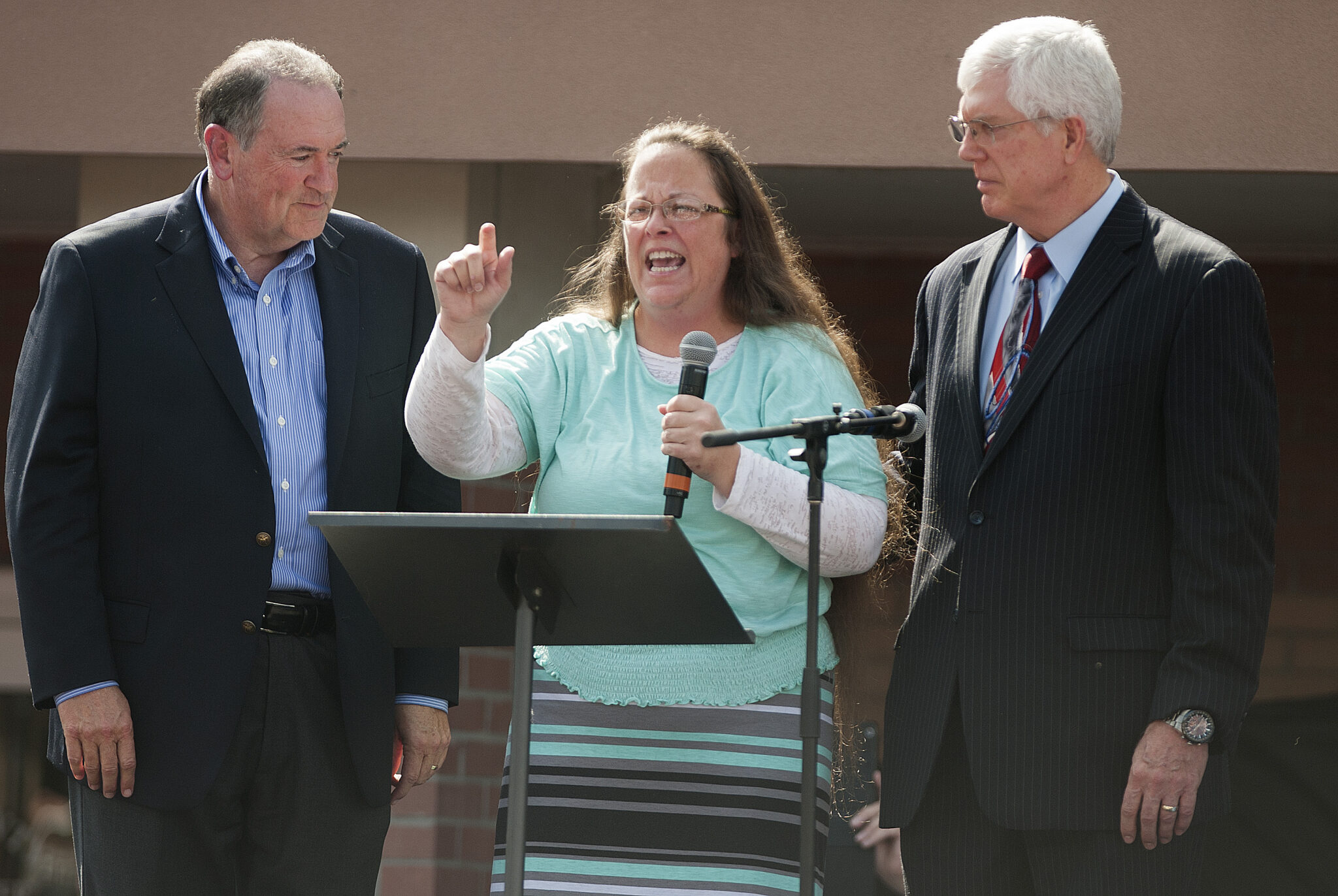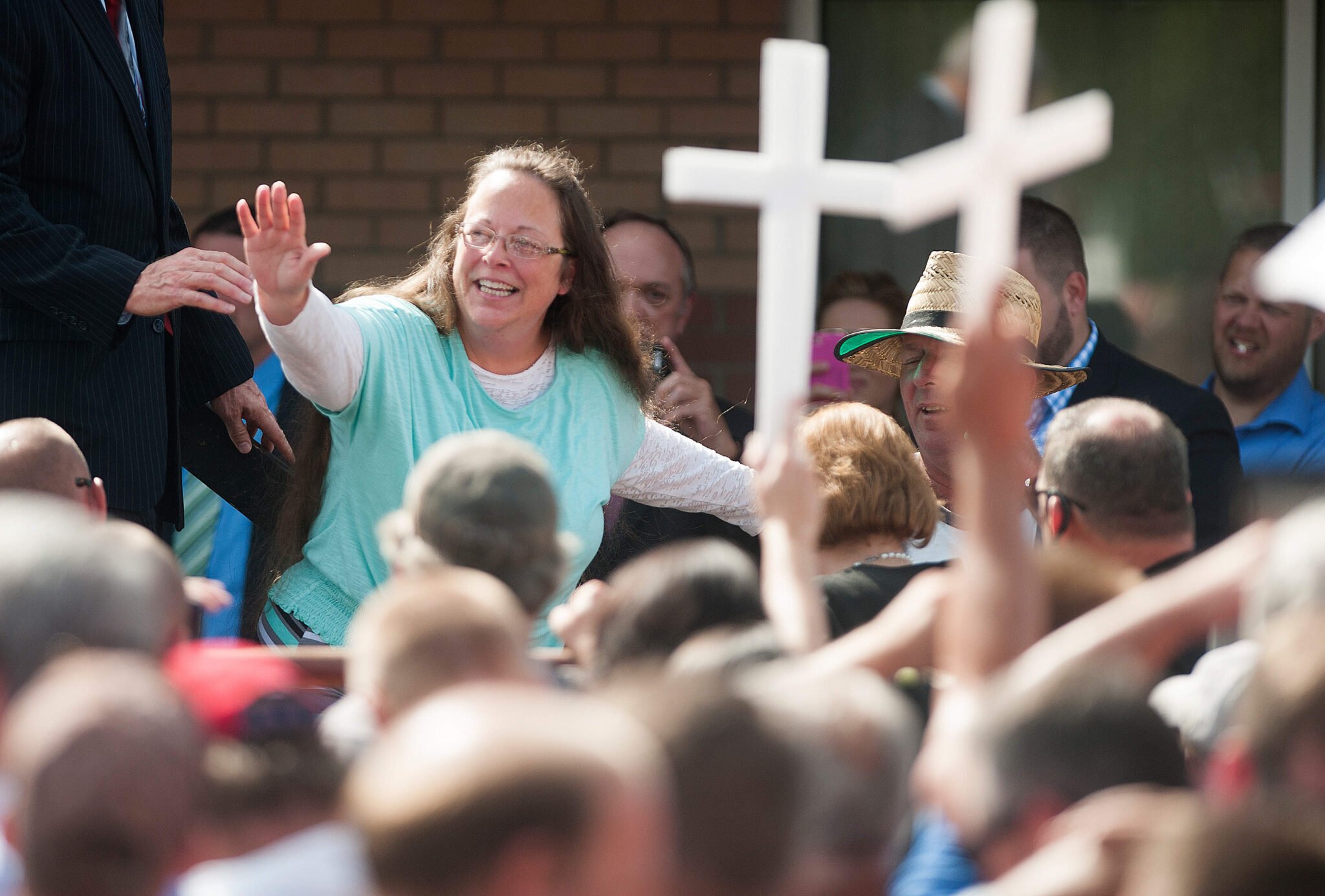The U.S. Supreme Court on Monday declined to take up an appeal from Kim Davis, the former Kentucky county clerk who refused to issue marriage licenses to same-sex couples a decade ago. The decision leaves intact the 2015 landmark ruling in Obergefell v. Hodges, which guaranteed marriage equality nationwide.
For many in the LGBTQ+ community, the court’s move offers a sigh of relief after years of uncertainty about whether marriage equality could once again be challenged. Davis’s appeal asked the justices to revisit Obergefell, arguing that her religious beliefs should have protected her from liability for denying marriage licenses to same-sex couples while serving as a government official.

The court rejected the petition without comment, effectively ending Davis’s case. The outcome upholds a lower court ruling that ordered her to pay damages to two men who were denied a marriage license in 2015. It also reinforces the principle that public officials must fulfill their duties without discriminating against citizens based on sexual orientation.
A signal of stability for marriage equality
In a time when LGBTQ+ rights have come under renewed scrutiny, the Supreme Court’s refusal to reconsider Obergefell is seen as a stabilizing moment. Despite the court’s 6-3 conservative majority, the justices showed no interest in reexamining the decision that legalized same-sex marriage. For now, this sends a clear message that marriage equality remains the law of the land.

However, some observers caution that this doesn’t mean the debate is over. Certain conservative justices have previously suggested that Obergefell could be reexamined, and the court has in recent years expanded protections for religious liberty, sometimes at the expense of LGBTQ+ rights.
The ongoing balance between religious freedom and equality
The Davis case highlighted the ongoing tension between claims of religious freedom and the rights of same-sex couples. Davis argued that her faith prevented her from signing marriage licenses for gay couples, but courts have consistently ruled that public officials cannot use personal religious beliefs to deny services required by law.
When the Supreme Court hands down a ruling that affects the LGBTQ+ community, you’d think there’d be a moment to breathe or even celebrate, but for many, the feeling is the exact opposite.
The ongoing balance between religious freedom and equality.
The Davis case highlighted the ongoing tension between claims of religious freedom and the rights of same-sex couples. Davis argued that her faith prevented her from signing marriage licenses for gay couples, but courts have consistently ruled that public officials cannot use personal religious beliefs to deny services required by law.
When the Supreme Court hands down a ruling that affects the LGBTQ+ community, you’d think there’d be a moment to breathe or even celebrate, but for many, the feeling is the exact opposite.
Instead of a win, some recent decisions feel like a terrifying, targeted attack that grants a “license to harm“ in the name of conservative ideology. This escalating anxiety is rooted in recent outcomes, particularly 303 Creative LLC v. Elenis (2023), where the Court empowered certain business owners to sidestep non-discrimination laws based on free speech claims, and Fulton v. City of Philadelphia (2021), which expanded religious exemptions for public service providers like foster care agencies. It’s this continuous erasure of protections that generates a sentiment so harsh that some are calling it a “near drive-by shooting“ on their civil rights. Essentially, they worry that the Court is chipping away at basic protections, making it okay for people to openly discriminate.
This isn’t just about legal theory, instead, it’s about a real, constant fear that their hard-won rights are being undone, leaving them feeling more exposed and vulnerable than ever before. That’s why, for a large part of the community, this is a time for scared vigilance, not champagne toasts.
By declining to take the case, the Supreme Court reaffirmed that balance: individuals are free to hold personal beliefs, but government actors must uphold constitutional rights equally for all citizens.
The court’s decision doesn’t end the broader battle over LGBTQ+ equality. While marriage rights appear secure for now, related issues — including adoption rights, parental recognition, and protection from discrimination, remain under legal and political threat in several states.
Advocates see this ruling as an important victory, but not a reason to grow complacent. The refusal to revisit Obergefell gives same-sex couples reassurance that their marriages remain valid and recognized. Yet, the continued push from some conservative groups to expand religious exemptions means future challenges could still emerge in different forms.
For now, the message from the nation’s highest court is clear: marriage equality stands. But maintaining that right will require vigilance, advocacy, and continued commitment to the principles of equality and justice that Obergefell enshrined a decade ago.



